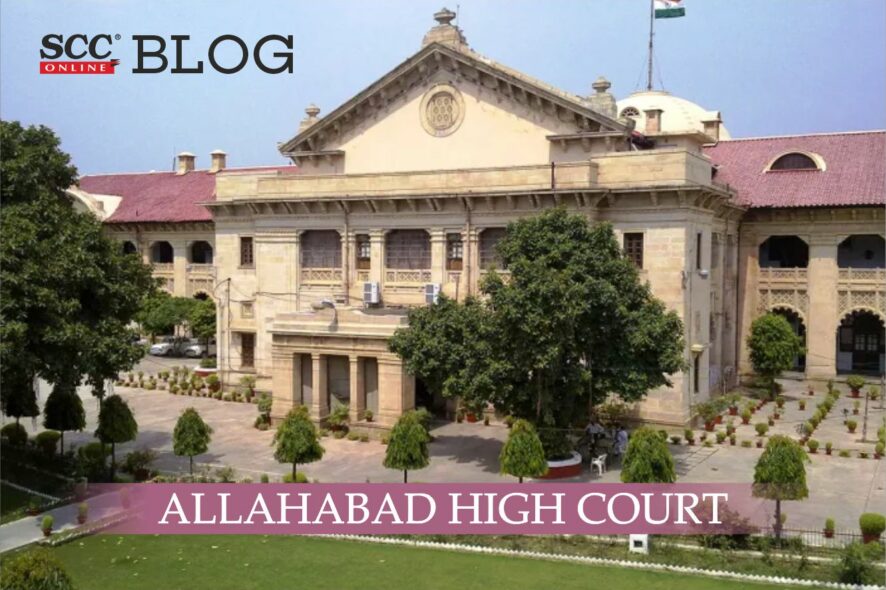Allahabad High Court: In a criminal revision petition filed under Section 102 of the Juvenile Justice Act challenging the order passed by Juvenile Justice Board (‘JJB’), and challenging the order dated passed by Special Judge (POCSO) affirming the order of the JJB and declining bail to the juvenile for offences under sections 376-AB of the Penal Code, 1860 (‘IPC’) and Section – 5(m) or 6 of Protection of Children from Sexual Offences Act, 2012 (‘POCSO Act’), Jyotsna Sharma, J. has observed that bail to a juvenile is not compulsory in all cases and can be denied for certain reasons, thus seeing the gravity of the offence, upheld the said orders.
In this case, it was alleged by the victim’s mother that when her daughter, aged about 6 years, was playing outside her house, the accused, aged about 15 years, lured her on the pretext of giving toffee and took her behind a hut and committed rape on her. In the medical examination about 1 cm tear was found in her fourchette and she was bleeding. As the accused was a juvenile, the matter was brought before the Juvenile Justice Board. Further, in the age determination inquiry his age was found to be about 12 years and 10 months and in the social investigation report, it was observed by the District Probation Officer that the boy requires strict control and supervision. Thus, JJB declined bail to the juvenile.
The Court took note of Section 12(1) of the Juvenile Justice (Care and Protection of Children) Act, 2015 that deals with the matters of bail to the juvenile, and observed that, it is clear that the law does not say that once a person is found a juvenile, he should be released on bail notwithstanding other facts and circumstances of the matter, thus the bail can also be denied if juvenile’s release, in the opinion of the Court, would defeat the ends of justice.
It was also observed that the phrase ‘ends of justice’ is undoubtedly a meaningful phrase bringing within its sweep many factors including, the nature of the crime, the merits of the matter and other facts and circumstances which cannot be passed over by the Court.
The Court viewed that the Juvenile Justice Act, 2015 (‘JJ Act’) differentiates between offences falling into three categories, i.e., petty, serious and heinous offences and that the cases falling in different categories based on the said classification have been dealt with differently. Moreover, the Courts as well as the legislature have been conscious of the need to deal with the matters of heinous offences in a more sensitive manner.
The Court opined that whenever a Court is exercising powers under the provisions of JJ Act, 2015, the general principles as enumerated in Section 3 of the Act must be kept in mind as guiding factor. Further, all decisions regarding the child should be based on primary consideration of the best interest of the child, considering the demands of justice of the other side.
The Court noted that the scheme of the Act has a twin approach, i.e., reformatory as well as retributive to a certain extent, and while dealing with grant or refusal of bail, the ends of justice may compel the Court to strike a balance between competing and often conflicting demands of justice of both the sides, i.e., the accused and the victim. Thus, here the nature of the crime, the methodology adopted, the manner of commission and the evidence available may assume ample significance. Moreover, the aim and object of this act, is to achieve not only the welfare and betterment of a juvenile by extending to him services of reformatory nature, so that he can be brought back to mainstream of society as a person of healthy mind, but also to address the concerns of society at large at this stage, and this aim cannot be achieved unless a holistic view of the matter is taken.
The Court further opined that to give meaning to the phrase ‘ends of justice’, the matter of bail must be seen literally through a prism having three angles, i.e., firstly, the angle of welfare and the best interest of the child, secondly, the demands of justice to the victim and her family and thirdly, the concerns of society at large; and in the end, the court must depend upon its own robust sense of justice.
Thus, it was observed that “in this case a girl of very tender age was put to violent sexual assault by a boy of merely 15 years and she was enticed in a well-planned manner by offering sweets. Further, the trauma and shock caused to an innocent girl, who had no understanding and inkling of the act with which she had to go through and the resentment, which was caused to the members of her family, can easily be understood” Thus, the Court dismissed the criminal revision petition.
[X v. State of UP, Criminal Revision No. – 1036 of 2022, decided on 21-10-2022]
Advocates who appeared in this case:
Counsel for Revisionist:- Advocate Satendra Singh;
Counsel for Opposite Party:- Government Advocate Mukesh Kumar Maurya.






